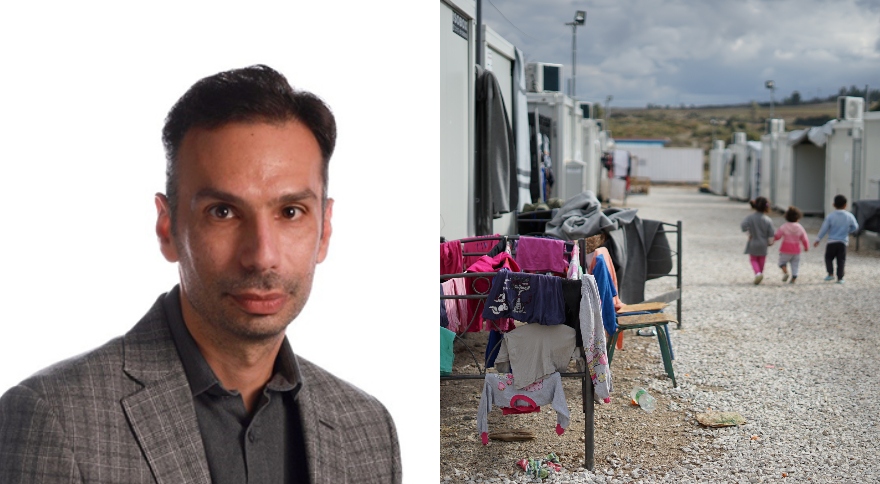Research published by Dr Kostas Maronitis, an academic in Leeds Trinity’s School of Digital and Screen Media, explores European immigration and experiences, with key themes particularly relevant today.

Dr Maronitis’ book Postnationalism and the Challenges to European Integration in Greece: The Transformative Power of Immigration, originally published in 2017, is one of the first examinations of the immigration crisis in the EU and its impact on politics and society.
His research offers an assessment of immigration policies and perspectives in Europe, reflects the salience of immigration in recent debates and electoral contests across Europe, and examines Greece’s experience of harmonising and integrating itself with the EU while dealing with immigration and asylum.
In his work, Dr Maronitis creates the concept of ‘Europia’ in order to analyse how the immigration crisis creates utopian and dystopian visions regarding the present and future of the European project. Interconnected case studies bring to life the themes of political theory and the EU, immigration policy and control of mobility, detention and human rights, and integration and tolerance.
The research gives a voice to migrants and refugees, highlighting their desire for inclusion, their rights and quality of life, while raising awareness of their circumstances and stimulating discussion about equality and human rights.
The key themes of the book remain especially relevant following Brexit and the ongoing Ukrainian refugee crisis.
Dr Maronitis said: “My research interests include political campaigns and communication, immigration, automation and labour, nationalism, identity and European politics. As a Senior Lecturer in Media, I am always looking to find new ways to tell these stories.
“Postnationalism and the Challenges to European Integration in Greece: The Transformative Power of Immigration contributes to the understanding and analysis of migration as a wider phenomenon, and also features a range of case studies to raise awareness of the experiences of migrants and refugees, and their need for inclusion.
“Although first published in 2017, this work remains extremely relevant today, as the world seeks to respond to the ongoing Ukrainian refugee crisis and listen to their stories.”
Professor Karen Sayer, Interim Institutional Research Lead at Leeds Trinity University, added: “Kostas’s research is an insightful and challenging exploration of European immigration. It has an impact on the general perception of issues linked to immigration, racism and minority ethnic communities, which results from wide-spread sharing across media, public organisations and educational work.
“At Leeds Trinity, our University staff have extensive professional experience in their fields, and as well-respected researchers continue to contribute to our reputation for excellence in applied research and a research-led culture that enhances our students’ learning experience. This study is just one example of this.”
In 2020, Dr Maronitis was acknowledged as an expert contributor by the Parliamentary Office for Science and Technology (POST) for submitting questions to the House of Commons and House of Lords around the themes of the future of work and the pandemic, immigrant workers and no recourse to public funds, welfare, public health and workers’ rights.
Dr Maronitis’ work on European immigration was included as part of Leeds Trinity University’s submission to the Research Excellence Framework (REF) 2021.
Read more about Leeds Trinity University and REF 2021.